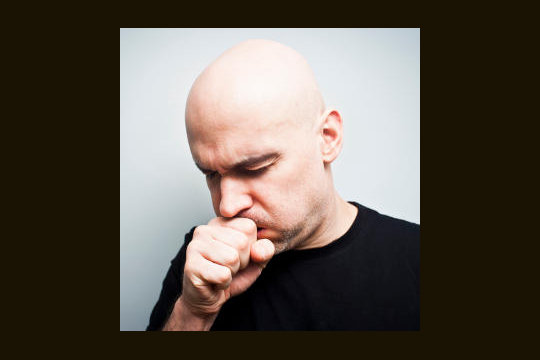Phlegm. Ick. No one wants to think about phlegm. It’s gross, right? But it’s important to talk about, especially during cold and flu season. A lot of people are or soon will be dealing with colds, congestion and other seasonal infections—and they often come with phlegm.
Mucus is a normal part of your body. Your respiratory system is packed with mucus membranes that secrete mucus to protect your body against allergens and harmful bacteria. As mucus works to catch cells that are trying to enter your body, it can start to thicken and become phlegm.
“While your body is constantly creating mucus, you usually only notice it when you’re sick and it starts to change in appearance. Sometimes, your phlegm can change color and texture from certain infections or other factors,” says David Kalodner, D.O., a primary care physician at Crozer-Keystone Health System. “It’s important to keep an eye on changes in your phlegm and when it could be telling you to go see a doctor.”
Yellow or Green Phlegm
When you’re feeling awful from a cold or the flu, your phlegm might be a gross color, too. If you start coughing up phlegm that looks yellow or green, it’s a sign your body is fighting an infection.
“When you’re sick, your body will produce white blood cells to attack the infection. These cells can secrete a green-colored enzyme that thickens your phlegm and makes it look yellow or green,” Kalodner says. “This doesn’t mean your phlegm will be bright green or yellow every time you’re sick. The change in color and texture depends on severity and duration of the infection.”
If you do have an infection, you’ll most likely notice other symptoms like a fever, congestion and pressure in your face.
Red or Pink Phlegm
It’s normal to be surprised if you notice you’re coughing up what looks like blood. However, if what you’re coughing up looks frothy and more like red- or pink-colored phlegm, it’s usually not a cause for concern.
If you’re feeling under the weather, pink- or red-looking phlegm is most likely from prolonged coughing. The constant irritation in your respiratory tract or digestive system can cause blood vessels to rupture, leading to blood-tinged phlegm.
The pink or red shade of the phlegm will depend on how much blood is in it. If what you’re coughing up looks dark or mostly like blood, see a doctor as soon as possible.
“Blood-streaked phlegm is common. If it’s related to a more serious medical condition, you’ll likely have other noticeable symptoms such as chest pain, weakness, shortness of breath, a rapid heart rate or you’ll notice blood when you use the toilet,” Kalodner says. “If you start to experience any symptoms out of the ordinary or if you have blood-streaked phlegm that is worrying you, talk to your doctor.”
Black Phlegm
The reason you might start coughing up black phlegm depends on your lifestyle choices or if you have an infection.
“People who smoke or do drugs are more likely to cough up black phlegm. It’s often associated with coal miners and others frequently exposed to coal dust—black phlegm can be a sign of pneumoconiosis or black lung disease,” Kalodner says.
If you’re not a smoker or aren’t usually around coal dust, black phlegm could mean you have a yeast infection known as exophiala dermatitidis. This condition is rare, however, and is more of a risk for people with cystic fibrosis.
A change in the color of your phlegm is not a cause for concern in most cases. It’s simply a sign your body is fighting off an infection. If changes in your phlegm and other symptoms make you uncomfortable, discuss your concerns with your doctor.
About Crozer Keystone Staff
Crozer-Keystone Health System’s physicians, specialists and advanced practitioners are committed to improving the health of our community through patient-centered, quality care across a full continuum of health services. Crozer Brinton Lake is Crozer-Keystone’s comprehensive outpatient care facility in western Delaware County, offering primary care, specialty services, outpatient surgery and advanced cancer treatment. Contact us: 300 Evergreen Drive, Glen Mills, PA 19342 http://www.crozerkeystone.org/Brinton-Lake 1-855-254-7425
- Web |
- More Posts(131)


Comments